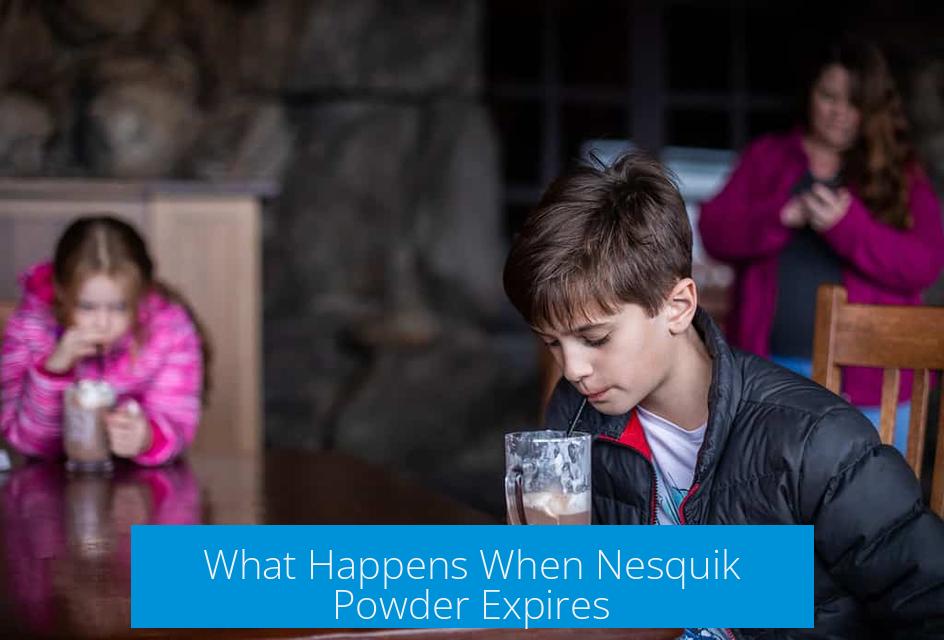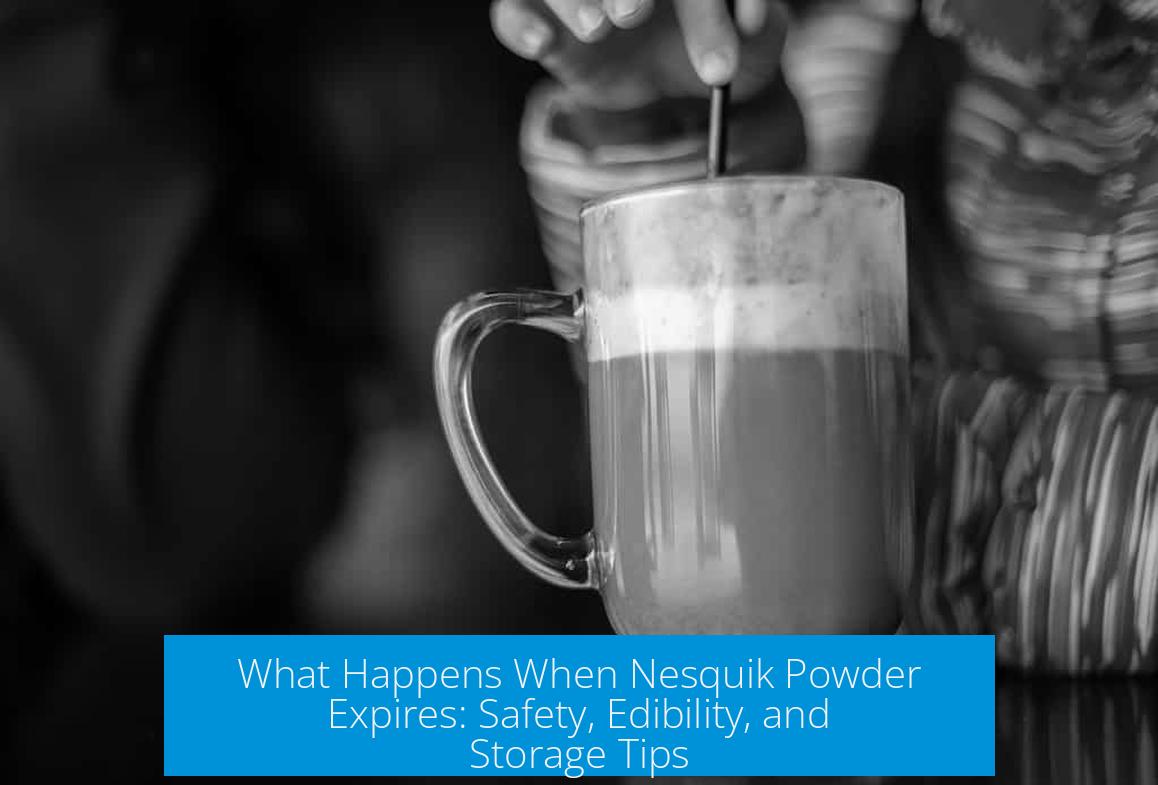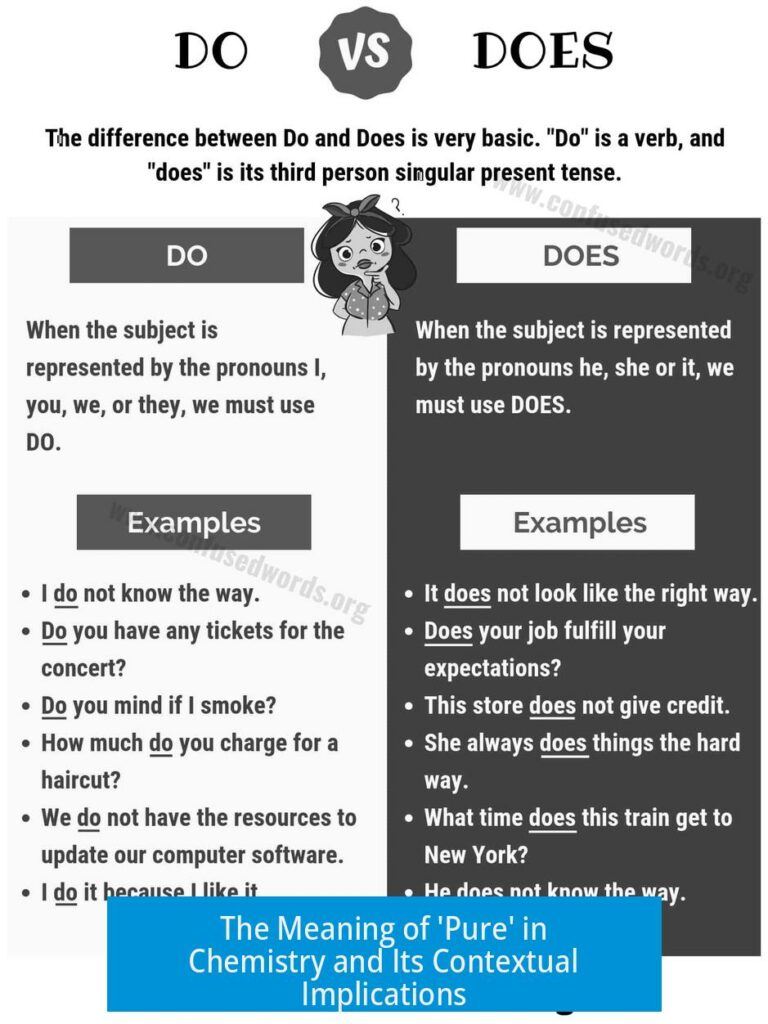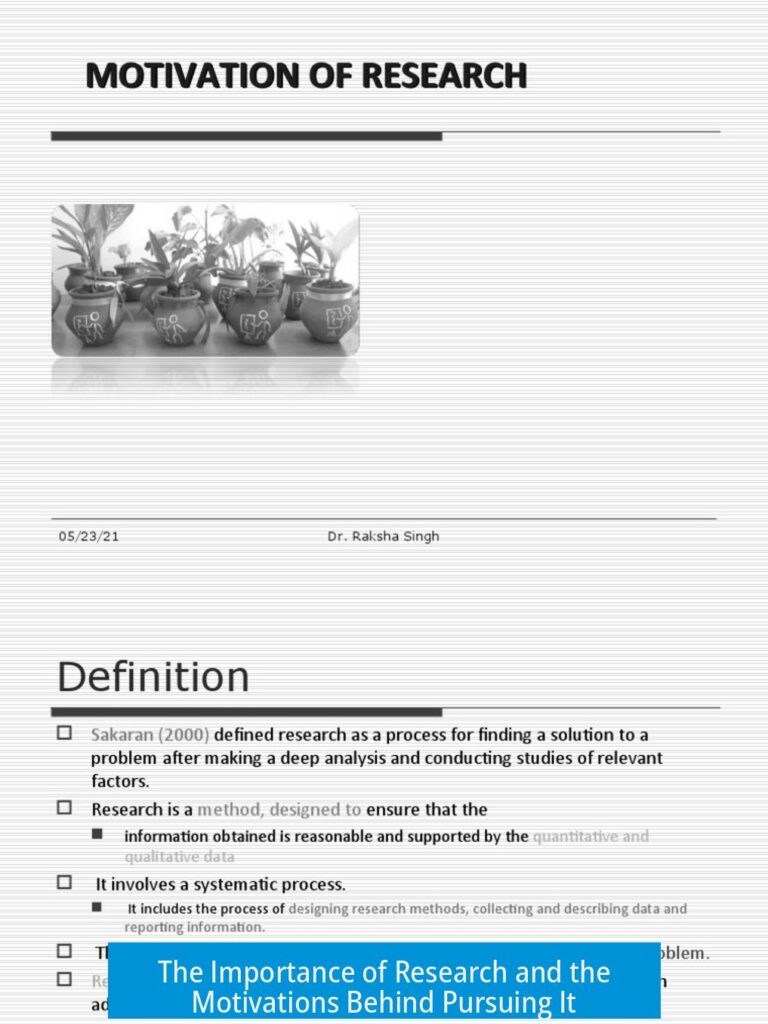What Happens When Nesquik Powder Expires

When Nesquik powder expires, the product may lose quality in taste, texture, and solubility. It may not mix well with milk and can develop off-flavors due to oxidation or rancidity. Although harmful microbial growth is generally unlikely if the powder has been stored properly and remains dry, exposure to moisture and air can lead to spoilage or contamination. Consuming expired Nesquik may result in mild gastrointestinal discomfort in some cases, but if the powder looks, smells, and tastes normal, it is typically safe.
Understanding the Expiry Date on Nesquik Powder
Expiry dates on Nesquik powder indicate the period for which the manufacturer guarantees the product’s quality and safety. This date does not necessarily mean the product becomes unsafe immediately after it passes. Manufacturers test stability and quality up to the printed date. Beyond that, the product may remain edible but could begin to degrade in quality.
Many dry goods like Nesquik powder tend to remain stable beyond expiration if stored correctly. The date mainly reflects when the best taste, texture, and nutritional profiles are assured. Consumables past their expiry date should be assessed before use based on appearance, smell, and taste.
Safety and Edibility Beyond the Expiry Date
Users often report consuming Nesquik powder well beyond its expiration without adverse effects. Visual inspection and sensory evaluation are key methods for judging its suitability.
- If the powder looks free of clumps, mold, insects, or discoloration, it usually is okay.
- Smell the powder; if it smells fresh and chocolate-like without rancidity or sour notes, it is likely safe.
- Taste a small amount diluted in milk to check for off-flavors before regular consumption.
Reports from consumers show Nesquik powder can remain palatable and safe even several years past the expiry under good storage conditions. Because it has no water content, the risk of bacterial growth is low if moisture has not been introduced.
Risk of Spoilage and Contamination
The main ingredients in Nesquik powder are sugar and fats from oils. These are relatively resistant to spoilage but can degrade over time. The primary spoilage risks involve moisture ingress and oxidation.
- Moisture absorption: Every time the container opens, tiny amounts of humidity can enter, leading to clumping and providing a niche for microbial growth.
- Microbial spoilage: If moisture and nutrients combine, microbes may grow, producing foul odors and potentially causing contamination.
- Rancidity: Fats in the powder can oxidize, producing rancid smells and off-tastes.
- Insect contamination: Occasionally, small bugs might infest the product, especially if the seal is broken or storage is poor.
Signs of spoilage include a sour or off smell, visible mold or bugs, clumping, and failure to dissolve properly in milk. Spoiled Nesquik powder should be discarded to avoid health risks.
Physical Changes in Expired Nesquik Powder
Expired Nesquik often exhibits physical changes that affect consumer experience:
- Mixing Issues: The powder may fail to dissolve smoothly in milk. Stirring might cause it to clump or float on top rather than blending in.
- Taste Changes: Oxidation of chocolate components and fats can alter the flavor, making it less enjoyable or giving it a stale or bitter taste.
These changes do not always indicate harmful spoilage but impact the product’s quality and enjoyment.
Health Effects of Consuming Expired Nesquik
Many people safely consume expired Nesquik powder without problems. However, some report mild to moderate gastrointestinal distress from consuming older product. Symptoms can include:
- Stomach pain
- Diarrhea lasting up to two days
- Nausea or discomfort
The likelihood of adverse effects depends on individual sensitivity and how the powder has been stored. If spoilage or contamination has occurred, the risk increases.
Overall, serious illness from expired Nesquik powder appears rare. Monitoring sensory cues reduces risk.
Storage Recommendations to Extend Shelf Life
Proper storage significantly delays spoilage and quality loss. Key factors are limiting moisture, oxygen, heat, and light exposure.
- Moisture control: Store in airtight containers to prevent humidity absorption.
- Oxygen reduction: Vacuum-sealing or nitrogen-flushing containers minimize oxidation and rancidity.
- Temperature management: Cool, dry places or refrigeration slow degradation.
- Light protection: Use opaque containers or store away from direct light.
Some beverage professionals advise dividing large containers into smaller portions and vacuum sealing to extend usable life. Storing Nesquik powder in the freezer also helps maintain quality for longer periods.
Additional Considerations
Expiry dates may also relate to packaging integrity or labeling requirements, not just the powder itself. Nutritional information legibility sometimes dictates expiration labeling.
Some humorous or opinion-based comments about Nesquik or its manufacturer exist online but do not affect safety or scientific facts.
Summary of Key Points
- The expiry date guarantees quality, not immediate spoilage or danger.
- Expired Nesquik may remain safe if stored well and free from moisture and contamination.
- Visual, smell, and taste evaluations are critical to determine edibility after expiry.
- Common spoilage signs include rancid odor, clumping, and presence of bugs or mold.
- Expired powder often loses solubility and flavor freshness due to oxidation.
- Some users experience mild gastrointestinal discomfort from expired product.
- Proper airtight, cool, and low-oxygen storage extends shelf life significantly.
What happens to Nesquik powder after its expiry date?
After expiry, Nesquik powder may not dissolve well in milk and could taste different due to oxidation. It might still look and smell normal but may lose mixing ability.
Is expired Nesquik powder safe to consume?
If it looks, smells, and tastes fine, it is likely safe. However, some people report stomach pain or diarrhea after consuming expired powder. Use your senses to decide.
Can Nesquik powder spoil or become contaminated?
Yes, moisture can enter the container, causing microbial growth. Spoiled powder may smell rancid or show signs of bugs. These are clear indicators to discard it.
How can I extend the shelf life of Nesquik powder?
Store it away from moisture, heat, light, and oxygen. Using vacuum-sealed bags or airtight containers can keep it fresh longer.
Does the expiry date mean Nesquik becomes unsafe immediately after that date?
No, the expiry date is when the manufacturer guarantees quality. It does not necessarily mean the powder is unsafe beyond that date.





Leave a Comment